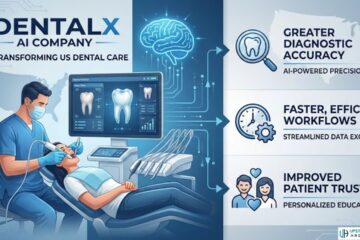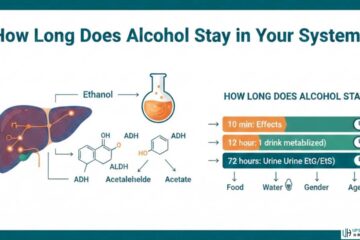The pharmacy industry is undergoing a major digital transformation and with the rise of new technologies, online tools, and mobile apps are changing how pharmacists access information, manage their patients, and improve their skills. As pharmacy practices modernize, it has become necessary for professionals to embrace these digital platforms. In this article, we will give you an outline of how to use online tools and apps to improve your pharmacy skills and knowledge.
The Digital Transformation of Pharmacy Practice
The adoption of digital health tools has surged in recent years, with a survey indicating that 87% of healthcare professionals are using some form of digital health tool in their practice. This showcases the increasing reliance on technology in healthcare, including pharmacy.
As we delve deeper into the digital age, it’s important to recognize the specific tools shaping the future of pharmacy. For that, you must know how to study for PTCB so that you can clear your exams and start your career as a pharmacist.
Key Online Tools Every Pharmacist Should Know

Online drug databases have become essential resources for finding drug information and interactions. According to an AAAS survey, 95% of pharmacists rely on digital databases for clinical decision support.
With the rise of technology in pharmacy, it’s important to pinpoint the key online platforms that every pharmacist should be familiar with. These platforms have become indispensable, but the evolution continues with the mobile revolution.
Crucial resources include:
- Lexicomp – Provides drug dosing, interactions, comparisons, cautions, and more. Key features include evidence-based algorithms and patient education.
- Clinical Pharmacology – Contains drug monographs, a pill identifier, modules for herbals, and pharmacogenomics. Offers a mobile app.
- Medscape – Features a drug interaction checker, medical news, disease information, and more. Provides free access.
- DailyMed – Source for FDA label information including dosage, warnings, and pharmacology. Contains over 85,000 drug listings.
- Drugs.com – Extensive database on prescription, OTC drugs, and herbal supplements. Offers tools like a pill identifier and interaction checker.
By leveraging these databases combined with critical thinking, pharmacists can optimize medication management and patient safety.
Mobile Apps Enhancing Pharmacy Skills
While online platforms provide a wealth of data, mobile apps make accessing this information even more convenient. Pharmacy-related apps have become essential for checking drug interactions, calculating dosages, and patient counseling. But beyond these, pharmacists can expand their knowledge through digital learning.
Interactive Learning Through Webinars and Webcasts
Webinars and webcasts enable pharmacists to participate in interactive learning opportunities. These digital events allow professionals to gain knowledge on specialized topics or emerging issues without geographical limitations. Pharmacists leveraged webinars to further their education in the past year.
Mobile apps have revolutionized pharmacists’ work, but the digital learning landscape offers more. Webinars and webcasts enable pharmacists to stay updated through advanced learning. With continuous education imperative in pharmacy, resources like Pharmacy Times Webinars are invaluable.
Webinars allow engagement through Q&A sessions, polls, and discussions. By replicating classroom dynamics digitally, they promote retention and critical thinking. Compared to passive reading, interactive webinars boost knowledge applications. Professionals can also network with peers through virtual events. Overall, webcasts and webinars are invaluable tools for pharmacists to master new skills efficiently.
Personalized Care Through Digital Platforms

Digital platforms enhance pharmacists’ ability to provide personalized care tailored to individual patients’ needs. Features like patient portals, apps, and online prescription management systems all facilitate customized treatment.
For instance, patient portals allow pharmacists to communicate with patients, access health records, and support medication management remotely. Portals and apps for pharmacists to track patient adherence and set reminders by leading health systems to drive engagement.
Online prescription tools also allow pharmacy staff to manage refills, sync multiple prescriptions, and streamline fulfillment. By centralizing data and automating workflows, these platforms free up pharmacists to focus on direct patient care.
Ultimately, technology empowers human connection at the individual level. Digital tools gather patient insights so pharmacists can provide holistic, proactive care. As technology handling routine tasks advances, the pharmacist’s role as a patient educator and advocate will grow.
The Future of Pharmacy: AI and Advanced Technologies

Emerging technologies like artificial intelligence (AI) and predictive analytics will transform the pharmacy landscape. AI has vast potential across pharmaceutical practices. In drug development, AI can analyze chemical structures to identify promising compounds. Machine learning expedites modeling and simulation for faster clinical trials. For manufacturing, AI optimizes production through automation and supply chain improvements.
AI chatbots and virtual assistants are already being used for customer service, freeing up pharmacists for clinical duties. Applications in image recognition, such as identifying pills, and natural language processing will grow.
Additionally, AI can extract insights from large datasets to enable predictive analytics. This allows pharmacists to provide proactive care through capabilities like:
- Predicting negative drug reactions and interactions
- Forecasting regional medication demands
- Modeling effects of treatment plans on patient health
- Personalizing medicine and dosing based on pharmacogenetics
Technologies like blockchain also show promise for securely managing inventory, verifying supply chain integrity, and validating prescriptions. While human expertise remains essential, embracing AI and advanced analytics will allow pharmacists to achieve more precision, productivity, and patient-centric care. Ongoing AI ethics education will be crucial to ensure responsible usage. Overall, the synergistic relationship between humans and technology promises to unlock enormous gains.
Staying Updated: Online News and Insights

With rapid advancements in pharmaceuticals and healthcare, it’s essential for pharmacists to continuously update their knowledge. Online news outlets and informational platforms offer easy access to the latest insights and innovations.
Resources like Pharmacy Times provide in-depth coverage of new drugs, treatment guidelines, legislative changes, and more. Their daily news updates ensure professionals stay informed on need-to-know developments.
Not just news but online journals, magazines, and even social media also enable pharmacist education. Following thought leaders, professional associations, and accredited institutions on sites like Twitter and LinkedIn exposes professionals to objective analysis, informed opinions, and cutting-edge findings.
Scheduling time weekly or monthly to browse news and publications is ideal. Signing up for email newsletters, journal alerts, and social media updates makes staying up-to-date effortless. Being an informed pharmacist leads to enhanced patient counseling and care.
Wrapping Up: Pharmacy Skills With AI
The pharmacy industry of pharmacy will continue to grow alongside technology. In this time of advancements and developments in pharmaceutical technology, staying updated and adapting is important. As professionals, it is necessary to embrace online tools and mobile apps which help in enhancing the optimal care given to patients.
Pharmacists should continuously explore new digital platforms and innovations to enhance their knowledge and skills and also keep pace with the latest advancements. Online platforms provide pharmacists with the latest news and insights.
See Also: Action Medical: Shaping the Future of Healthcare with UX










